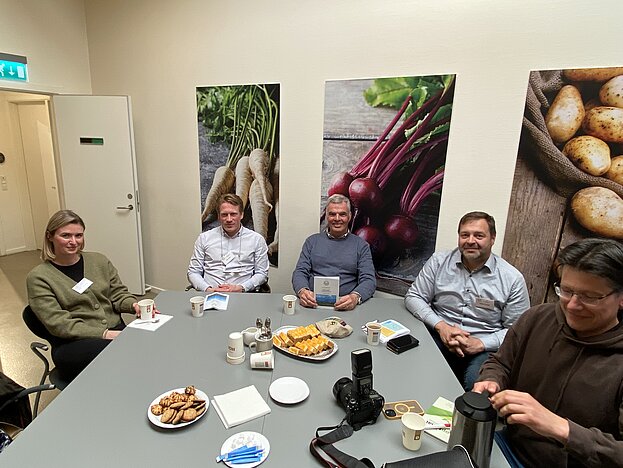
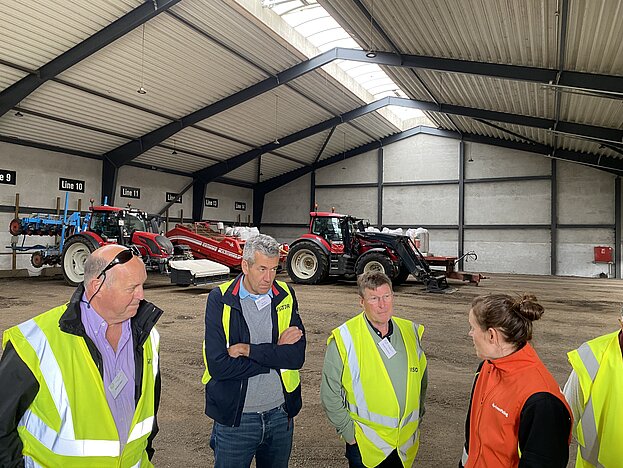
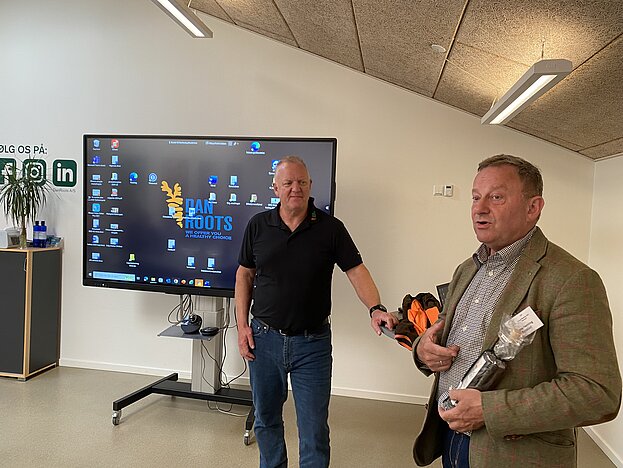
European Arable Farmers study trip to Denmark
The European Arable Farmers Club in the DLG e.V. - German Agricultural Society started its 2024 study trip to Denmark on Wednesday 5th June. A total of 30 participants from various countries, including Denmark, Norway, Romania, the Netherlands, Belgium, Scotland, Germany and the USA, are looking at innovations, sustainability and interesting business concepts in Northern Europe.
On the first day, the programme included a visit to DanRoots A/S. This is one of the most important producers of root vegetables such as carrots, radishes and potatoes for the Danish and German retail like EDEKEA and NETTO.
In addition to the interesting production, we were particularly impressed by the two entrepreneurial personalities Klaus Vestergaard and Linne Fromm-Christiansen, who discussed the KPI' and strategies with us in depth. Sustainability, economic discussion and impressive efficiency. Rating: Especially worth seeing and valuable.
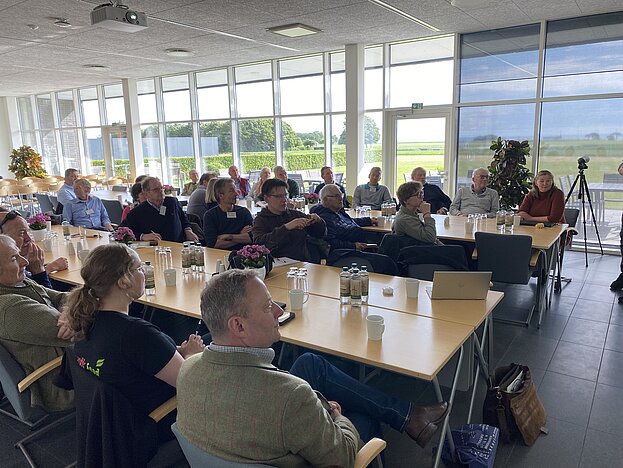
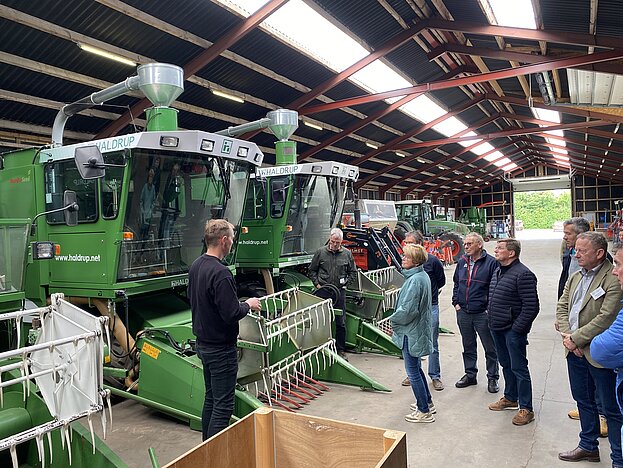
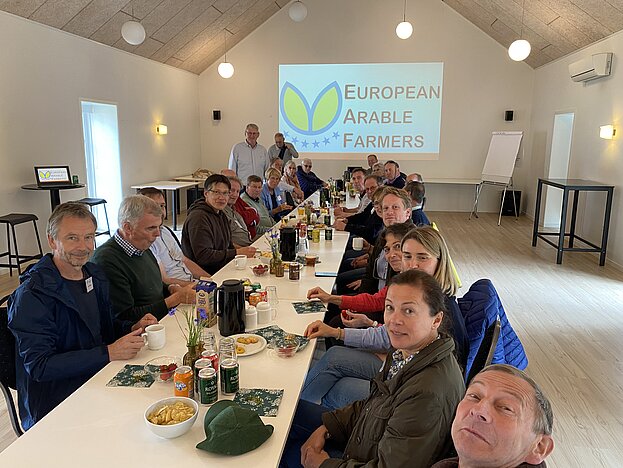
The second day of the European Arable Farmers 2024 study trip took the group to Nordic Seed A/S headquarters in Odder/Dyngby. CEO Petersen discussed the current breeding goals for cereals and legumes and current challenges in innovations such as genome breeding in plant cultivation with the farmers.
Our second stop of the day was the inspiring Agro Food Park at SEGES Innovation with Chief Consultant René Nielsen. The exciting exchange on the developments in sustainability measurement and the CO2-optimised supply chain between Denmark and the sustainability certification system in arable farming developed by the DLG produced many new ideas and similarities. It is also exciting to understand the initiatives that are possible to optimise the upcoming CO2 tax (e.g. biochar).
We concluded the day with an exciting business discussion at Redet A/S. In addition to the economic specifications of potato production (starch), we were also able to discuss the entrepreneurial aspects of a group of companies with several locations in Slovakia. Scaling, purchasing optimisation and optimal marketing are just as important as strategic financial planning and absolute cost awareness as success factors for sustainable agriculture in the future. Predicate of the day: An innovative and entrepreneurial Masterpiece.
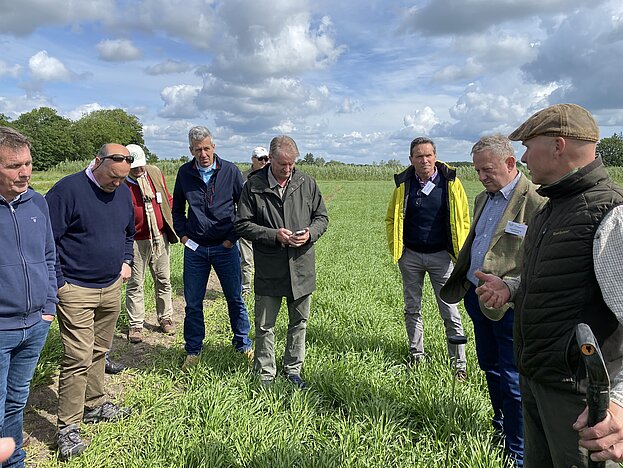
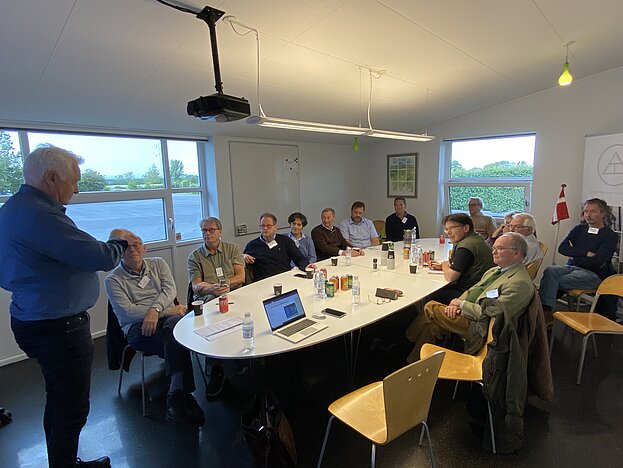
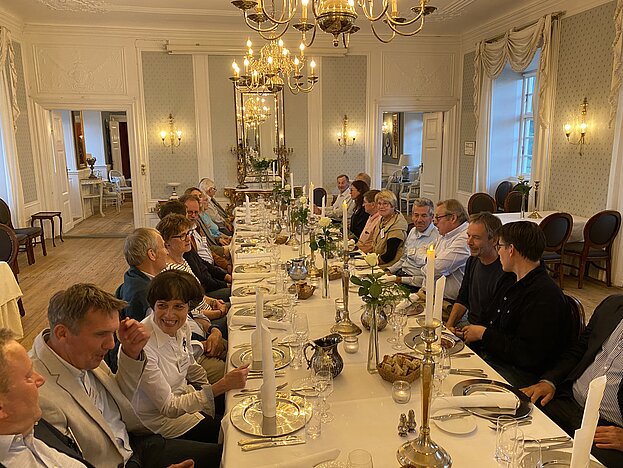
The third day of Studytrip 2024 in Denmark of the European Arable Farmers Club at the DLG e.V. - German Agricultural Society focussed on innovation and sustainability. In the morning, we visited a willow-based compost producer at Ny Vraa with the Manager Henrik Bach. The aim is to substitute peat products in compost for use in garden centres, cosmetics and zoo bedding. Supplemented by clover-grass mixtures (for the nitrogen), this results in an innovative compost mixture with renewable raw materials and a long useful production.
The idea of regenerative agriculture was also the focus of our 2nd station of the day. The farm "Klitgaard" with managing director Michael Bundgaard und is intensively involved in no-till soil cultivation and is an enthusiast in sustainable arable farming. It is important to look at alternative production conditions in order to meet the challenges of the future.
Our third stop was a visit to DLG-Konzern in Denmark, where we discussed the current production and challenges of rapeseed oil. In addition to the current qualities, the focus here was on sustainability reporting obligations (taxonomy, CSRD and Supply Chain Sustainability Obligations Act) and their significance for the value chain. Predicate: Broadening horizons.
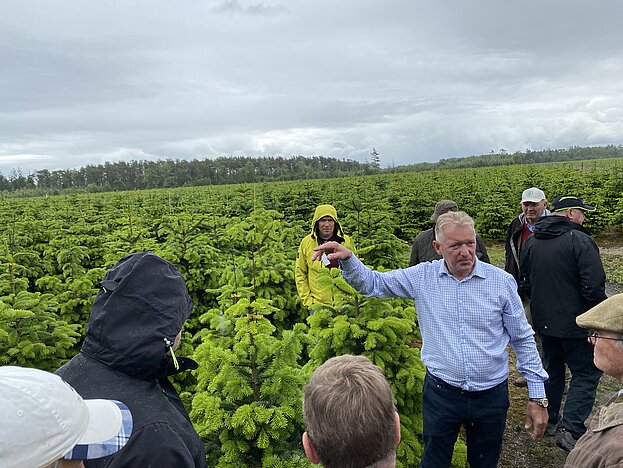
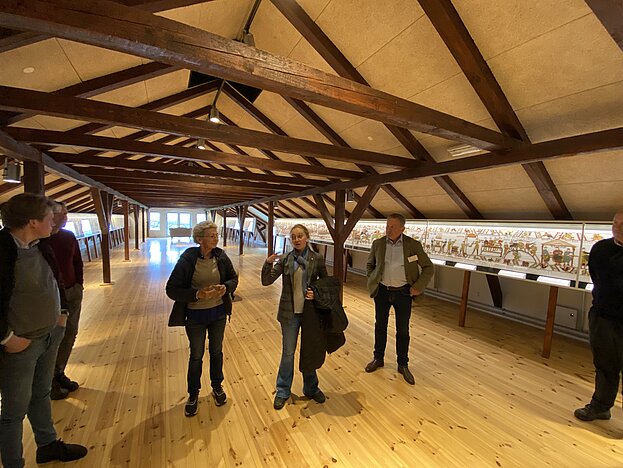
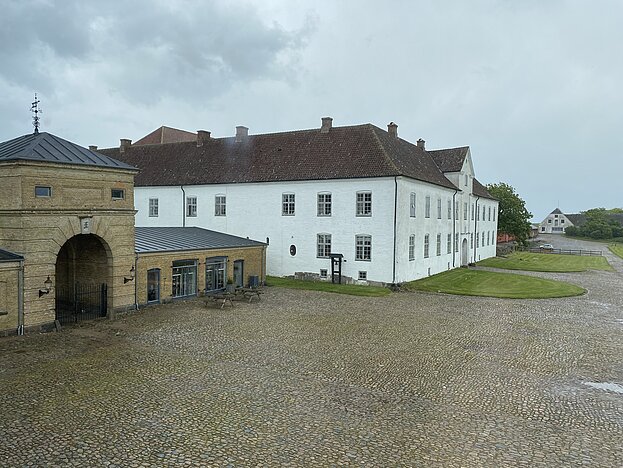
(Last) Day 4 of the 2024 study trip to Denmark organised by the European Arable Farmers Club in the DLG e.V. - German Agricultural Society took us to Raevhede for Christmas tree production. 1.5 million trees are exported from various locations throughout Europe and form the basis for a festive family celebration. Despite the emotional perspective, it is important to properly calculate the business case in order to master the enormous investment costs in the absence of cash returns in the first few years. In particular, the logistical masterpiece of the various quality classes is a major challenge and requires entrepreneurial skill.
The second site we visited was the Agri Energy A/S biogas plant, which produces biochar using a connected pyrolysis plant and sells certificates with the farmers in a co-operative via CO2 trading as a business model. This is an interesting building block in the carbon optimisation of the agricultural cycle. We should continue to observe this and possibly also keep it in mind in Germany.
We concluded our trip at the farm of our EAF President Hans Henning Rottbøll in Børglum Kloster Monastery with its historic tourist area. Diversification models often focus on building up several lines of business as a model for success - it's great to see how an entrepreneurial family business can master two intensive business models brilliantly.
Predicate of the trip: Inspiring insights
Next study trip in 2025 - Hungary and Serbia! Join the Club and discuss with us the topics of tomorrow!
